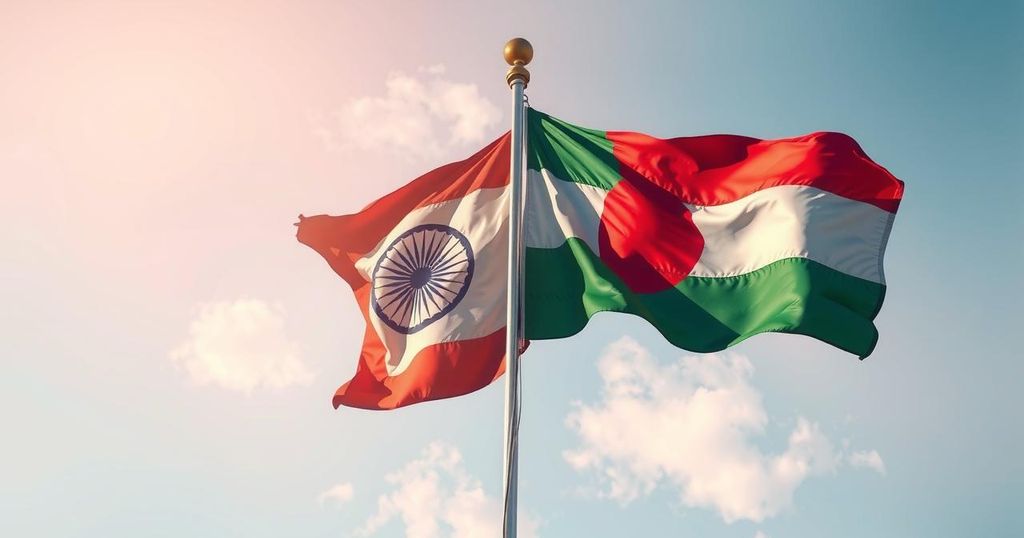Protester Removed for Waving Palestine and Sudan Flags at Super Bowl Halftime Show

A protester waved Palestine and Sudan flags during the Super Bowl halftime show featuring Kendrick Lamar. He was removed from the stage by security after running around for 20 seconds. This act drew attention to the humanitarian issues in Gaza and Sudan, amidst heightened security due to prior threats. The incident illustrates the complexities of social activism in sporting events.
During the Super Bowl halftime show on February 9, 2025, a man jumped on stage waving a Palestine and Sudan flag while Kendrick Lamar was performing. This individual was swiftly removed by security personnel after approximately 20 seconds of running around the field. It is not yet confirmed whether the protester was merely a fan or part of the official team associated with the halftime show. The incident brought additional attention to ongoing geopolitical issues, as the flag highlighted the situations in Gaza and war-torn Sudan.
The Super Bowl, an annual championship game for the National Football League (NFL), often features high-profile performances and has a platform that attracts significant international attention. The halftime show, in particular, serves as a venue for performances and expressions of social and political sentiments. Recent events have heightened security concerns surrounding the game, particularly in light of past incidents and ongoing tensions globally. In this context, any disruptive acts, such as flag-waving protests, have the potential to draw public and media scrutiny.
The incident at the Super Bowl halftime show underscores the intersection of sports and social activism, particularly in the context of significant geopolitical conflicts. Security measures at such high-profile events are critical, not only for participant safety but also to manage and respond to unexpected disruptions. The actions of the protester, though brief, reflect a larger trend of using public platforms for political expression, raising questions about the role of sports in social discourse. As details continue to emerge, it will be interesting to see how the NFL and event organizers address similar situations in the future.
Original Source: www.outkick.com






